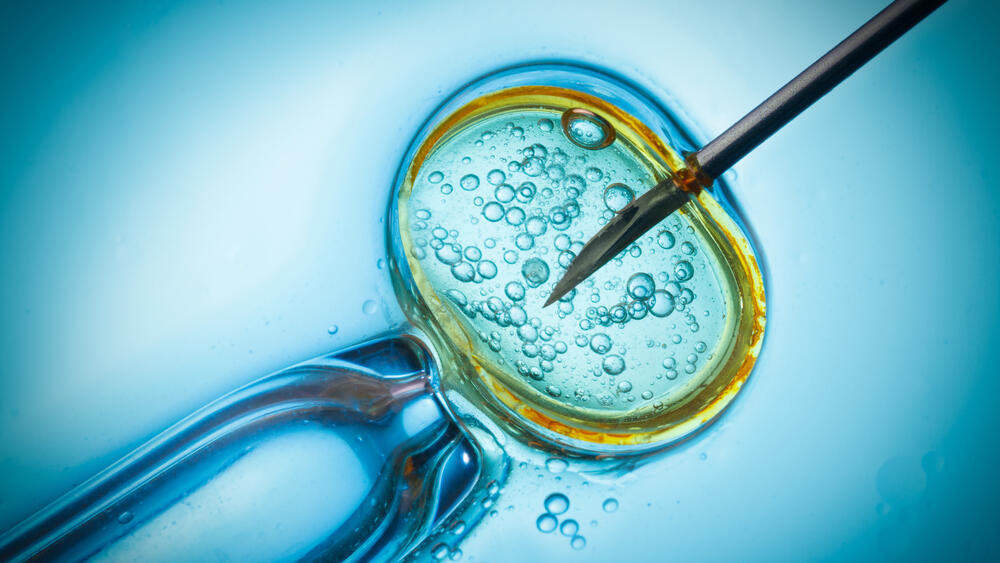A major European scandal involving a sperm donor who fathered 67 children—10 of whom developed cancer due to a rare genetic mutation—has raised concerns over sperm bank regulation.
Ynet learned on Sunday that the Danish sperm bank used by the donor exports to Israel. In response, the Health Ministry confirmed that none of the donor's sperm was used locally.
The incident, which remains confined to the European Union, has sparked debate over genetic screening and oversight. While Israeli regulations require testing for around 300 genetic diseases, experts warn this doesn't cover all risks. Israel also lacks a legally defined limit on how many families can receive sperm from a single donor—a gap that could lead to half-siblings unknowingly forming relationships.
"There’s no law that sets a clear limit,” said Dr. Micha Baum, director of Sheba Medical Center's sperm bank. “According to the 2007 Health Ministry guidelines, sperm banks should avoid having ‘many’ children per donor, but ‘many’ isn’t defined.” Sheba’s internal limit is typically up to 12 families per donor.
International sperm banks, which many Israeli women turn to for broader donor information, often allow much higher numbers. In the U.S., the cap is 25 children per donor per 800,000 births—a ratio that, if applied locally, would allow up to 100 births from one donor in the Tel Aviv area. Some European banks permit 25 to 75 families or more per donor.
The main concern, Dr. Baum said, is preventing hidden genetic relationships. “Patients worry about accidental incest,” he noted. “Fortunately, in Israel, children born via sperm donation usually know, and if there’s doubt, hospitals can check records—though donor identities remain strictly confidential.” He added that limiting offspring numbers also helps contain the impact if a genetic defect is discovered later.
 Dr. Micha BaumPhoto: Sheba Medical Center
Dr. Micha BaumPhoto: Sheba Medical CenterAccording to Baum, Israeli sperm donors may donate to only one bank. Their partial information is recorded in a Health Ministry database, preventing cross-bank donations—even years later.
Foreign donors present a bigger risk, he said, as they may father dozens of children. Many Israeli women prefer overseas donors because they can access photos and personal details. “That’s important for some people,” he added.
'Some women use 40 samples'
Dr. Yigal Madjar, director of Assuta Superm sperm bank, said the hospital's internal cap is also 10 to 12 families per donor. But without binding legislation, enforcing limits is difficult. “Some women use 40 samples and don’t conceive, while others get pregnant right away,” he explained. Women are required to report pregnancies, but many don’t—especially if they move cities or change relationships.
IVF clinics and health fund fertility centers often don’t update sperm banks about pregnancy outcomes, he said. “Even when fertilization occurs, 30% of pregnancies fail. Plus, embryos aren’t transferred all at once. Some are frozen for later, so tracking is nearly impossible without more resources and cooperation.”
Madjar called for clear legislation: “Without a structured system, it’s chaos. The Health Ministry is now drafting official written protocols for sperm banks, which are long overdue.”
Health Ministry: No donor match in Israel
Regarding the current case, Madjar said the donor carried a rare TP53 gene mutation, which affects tumor suppression and isn’t included in standard genetic screening. Currently, Israel tests donors and recipients for 295 genetic conditions, while Assuta tests for 500. “But we can’t test for 20,000 diseases,” he noted.
Get the Ynetnews app on your smartphone: Google Play: https://bit.ly/4eJ37pE | Apple App Store: https://bit.ly/3ZL7iNv
The real problem, he added, begins when donor samples are sold to multiple countries, making it hard to track the total number of children fathered. “Imported sperm increases the risk of genetic events simply due to scale,” he warned.
“Israeli sperm banks operate under the 2007 director-general’s guidelines, which require banks to limit the number of donations per donor," the Health Ministry said in a statement. "Since 2021, the ministry has maintained a donor database to prevent cross-bank donations.
“Sperm banks must report to the ministry if a genetic defect is identified in a donor or offspring. The ministry then notifies relevant parties and may halt use of that donor’s sperm," it added.



